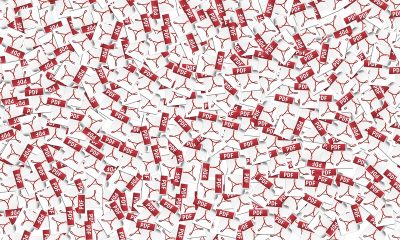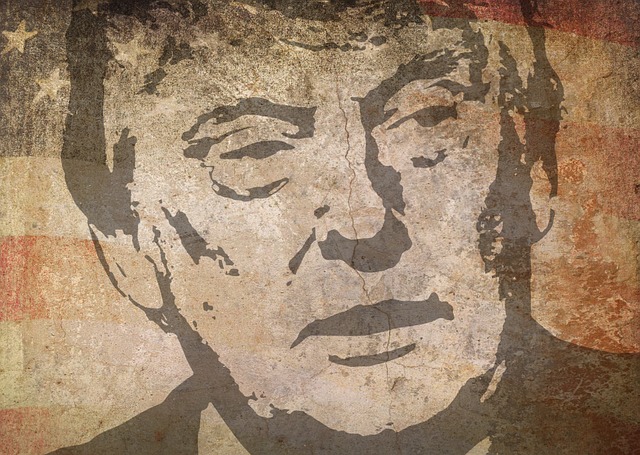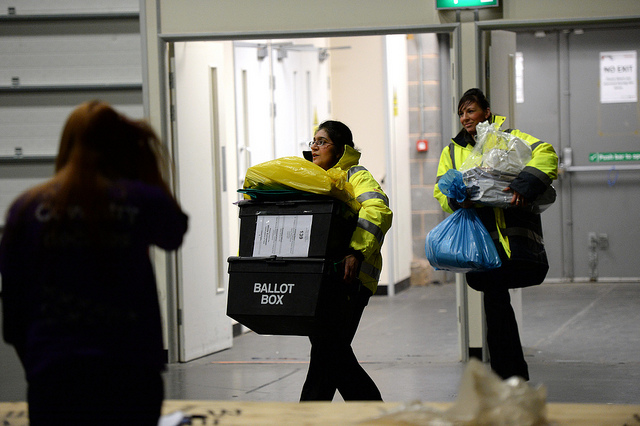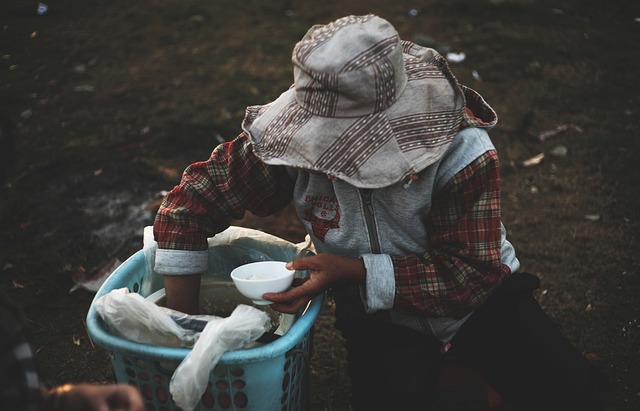Opinion
Changing The Rules of the Game: What to Expect When Social Media Dictates the News

Till about five years ago when I was still in high school and without a smartphone, a single faint thud against the front door every morning at roughly 7 AM would signal the arrival of the daily news digest for everyone in my house including myself. Even though I rarely read beyond the sports section and was more or less updated on every development with my favourite leagues, devouring those few pages was a daily ritual. Today, the newspaper arrives every morning in the same fashion and while the ritual has remained unchanged for most of my family, the need, as well as the want for it, does not exist for me.
My story is a phenomenon that resonates with millions of families across the world. The sources from where we get our news and the way we read it has been rapidly changing, in more ways for some than the others. When Pew Research Center conducted a study on ‘The Modern News Consumer‘ across the United States, it was found that 50% of adults from the ages of 18-29 get their news online, followed by television, radio and lastly with only 5% from print newspapers. Television was still reported to be the most dominant source of news among all age groups taken together. However, since it was mostly the choice of the older population, further changes over the next few years should be substantial and rapid. In another survey conducted by Pew this year, it was noted that about 67% of adults in the United States were getting at least some of their news from social media. While the numbers projected above are for the United States, there is no denying that an increasing population of young adults worldwide is getting more and more of its news from social media, and the same is intuitive given the average time a teen spends on social media is up to roughly two hours per day. The important questions however are:
1) whether social media is capable enough to take the baton as the foremost source of news and also
2) whether we as consumers of news are equipped enough to differentiate between what is news and what’s not.
Facebook, fake news, furore!
“Social media already provides more diverse viewpoints than traditional media ever has”, wrote Mark Zuckerberg in his 6,000-word manifesto in February this year on how Facebook plans to make the world better. There is little reason to doubt what he says. However, there are two sides to this coin as well since “the two most discussed concerns this past year were about diversity of viewpoints we see (filter bubbles) and accuracy of information (fake news)”, he also mentioned in the same address citing that alternate perspectives do not necessarily contribute to news and there is a need for a complete picture. Still, the greater evil here perhaps is the inaccuracy in information or what Zuckerberg calls it – ‘fake news’.
Zuckerberg’s address came soon after Facebook received heavy backlash for its role in the spread of fake news meant to divide the Americans ahead of the presidential elections. If that wasn’t enough to deal with, the pressure was sure to mount on the most popular social media site when it was caught in the midst of another incident relating to the spread of misinformation. Facebook’s safety check feature kicked in for citizens in Bangkok in December 2016 when an erroneous article about a bombing in a nearby shrine went viral. For users in the region, such a mistake can cause a pandemonium. With Facebook falling victim to the fake news again, the world was left evaluating their sources of consumption of news.
Trump’s tussles over Twitter
Let’s take a turn back to the United States yet again but away from Facebook. According to the same study conducted by Pew, about 74% of Twitter users have said that they receive their news from the social media site itself. Twitter allows you to keep a close tab on people you follow, and the problems associated with Facebook are largely avoidable. However, what happens when you are barred from following the president of your country on Twitter? Midway through the year, Donald Trump was sued by a free-speech group when he blocked a number of accounts on the grounds of criticism and dissent. With the White House spokesperson stating that tweets from Trump’s personal account were to be considered “official statements by the president of the United States”, the move was called unconstitutional and in violation of the First Amendment. The question then arises, will Donald Trump’s twitter account be treated as an official one, or despite the remarks from the White House will it be considered a personal one, in which case he may be allowed to block anyone from his account, just like any other person.
Just like Mark Zuckerberg had to shoulder responsibility for the unprecedented burden that social media all of a sudden now carries in disseminating the news, so did Twitter co-founder Evan Williams, although his role was different and just limited to admission of self-perceived guilt. Recognising that Twitter may have played an important role in having Trump elected as president, Williams publicly apologised when he said, “It’s a very bad thing, Twitter’s role in that. If it’s true that he wouldn’t be President if it weren’t for Twitter, then yeah, I’m sorry.”
Sharing the burden is your choice to make
Zuckerberg and Williams, among others, have been at the centre of a phenomenon where social media has taken over reporting and while Facebook, Twitter and other social media sites keep working on filters, resolutions, and artificial intelligence to help overcome the set of issues that this wave has brought with it, it does not mean there is no role for us to play. We are not all fed the same information as we were until a few years ago in the form of newspapers. Today we have fountains of news, information and opinions at the distance of a click, a tap or a scroll. Unfortunately, that also means that not everything that comes across our way is genuine, or to our liking, or even what we may be looking for. To that end, developing habits of open-mindedness, fact-checking and impartiality is imperative on our part.
When we are biased in favour of or against a particular idea or entity, we are often willing to skip checking of facts from sources we may feel are dubious or biased themselves if the news suits our allegiance on the matter. That is where impartiality jumps in. For example, as a young Indian adult when seeking an update on the situation in Kashmir I am aware that the dailies of the two different countries (India and Pakistan) may be under the political influence to portray the news as per the wishes of their respective countries’ governments. Keeping that in mind I may opt to read news from sources from both the countries individually, or maybe just not get carried away with the political undertones in the report from either of them to paint the opposition in a bad light and focus just on the facts. Similarly, while reading an article on the border dispute between India and China on the Chinese daily Global Times, I have to keep in mind the controversial journalism and the pro-government stance that the daily is often known to take, or perhaps get my news from some other source.
Social media has opened the doors to information and connectivity like never before for people all over the world. In the strife to make different platforms for dissemination of news better equipped to make us even better informed, we would do well to strive to also keep ourselves toe to toe with it.
China
Nepal Hindu Rashtra: Time to Wrap Up Communism?

Nepal abolished the Constitutional Monarchy in May 2008 and declared itself as a Federal Democratic Republic. There was a new hope in Nepal as it was becoming world’s newest democracy even though it had dissolved the Hindu Rashtra. However, the democracy in Nepal immediately got into the tight grips of leftists and communists backed by China. It has been almost 12 years since monarchy was abolished in Nepal. Interestingly, the Himalayan country has already seen 11 Prime Ministers in this period. Thus, leaving the Nepalese people still yearning for good and stable governance.
Re-establish Hindu Rashtra
As the political instability is growing in Nepal, people are demonstrating concerns about the future of the country. In fact, Nepalese citizens are unhappy with frequent interference by China and India influencing its unstable communist regime. More voices are now growing in support of reinstating the Monarchy and declaring Nepal as world’s only Hindu Rashtra (which by default offers full religious freedom to other religious minorities as per Hindutva concept of Sarva Dharma Sama Bhava – all paths lead to one).
Former Deputy Prime Minister of Nepal, Kamal Thapa said that if political parties do not recognize the seriousness of reinstating the monarchy, then the country will head for a period of darkness. “Recently, we’ve had high-ranking officials from India and China come to Nepal to try and solve problems within the ruling party,” he said. “We cannot let others dictate what we want to do.”
Communist Party All Set to Suppress Protests, By Force
Kamal Thapa has firmly demanded an all party meet to discuss reinstating of monarchy. Throughout the month of December, 2020 Nepal has seen anti communism protests across the country in support of reinstating the monarchy and Hindu Rashtra. Most importantly, the demand has become a nationwide mass people’s movement. So much so that the communist regime had to send a directive to 77 districts in 7 provinces. The directive suggests suppressing the protests by force. Nevertheless, Rashtriya Prajatantra Party and other royalist groups have ignored this threat from the communist regime. Protester groups have pledged to strengthen the protest in the coming weeks.
Nepal: Demonstration held in capital Kathmandu, demanding restoration of monarchy in the country. pic.twitter.com/TFjmKu9U9Z
— ANI (@ANI) December 5, 2020
Role of China – Hope for Communism in Nepal
China’s ambassador to Nepal is known to have very close relationship with Nepalese Communist regime. In fact, She has been super effective in tilting Nepal’s posture towards its ideological partner, China. One of her greatest achievements in 2020 was artificially manufacturing a border conflict between Nepal and India. Consequently, souring relations between the two Hindu majority nations. In addition, she managed to silence Nepal’s communist government after China took one of Nepal’s border villages under its control. However, recent political turmoil in Nepal and a renewed demand for reinstating of Hindu Monarchy is showing that the situation is now out of Chinese hands
Role of India
Year 2020, was not a good year for India and Nepal relations. India was busy in controlling domestic Covid cases. On the other hand, China had launched an invasive campaign into Indian territory. In addition, India is always busy with Pakistan on its western borders. However, the surprise came to India when China was almost successful in creating a new border tension between India and Nepal.
Those who do not know about Indian government should note that the current ruling party in India finds itself ideologically opposite to communism. This further creates differences between the two countries.
Communist party in Nepal has blamed India for supporting the ongoing anti communism protests in Nepal. However, former advisor to Nepal’s PM has suggested there is no proof that India is fueling pro Monarchy, anti communism demand in Nepal.
Nevertheless, There are certain influencers in India who have, in their personal capacity, expressed support for reinstating the Hindu monarchy. Yogi Adityanath, who is the Chief Minister of an Indian state bordering Nepal, said in 2015 that Nepal should declare itself a Hindu Monarchy. Readers should note that in 2015 Yogi Adityanath was not the Chief Minister yet. However, today he is not only popular in south of Nepal, his popularity is growing in Nepal as well.
Will The World See the first Hindu Rashtra?
It is difficult to answer this question at this moment. However, Nepalese communist government could not resolve the political instability and in December 2020 Nepalese government dissolved the parliament. Nepal will see next elections in April – May 2021. Hopefully, the world will see Nepal’s 12th Prime Minister in 13 years or may be a Hindu King? Royalists and protester groups have expressed confidence in winning next elections. We have our eyes on Nepal for updates.
Opinion
America’s Justice System – The Need For Reform
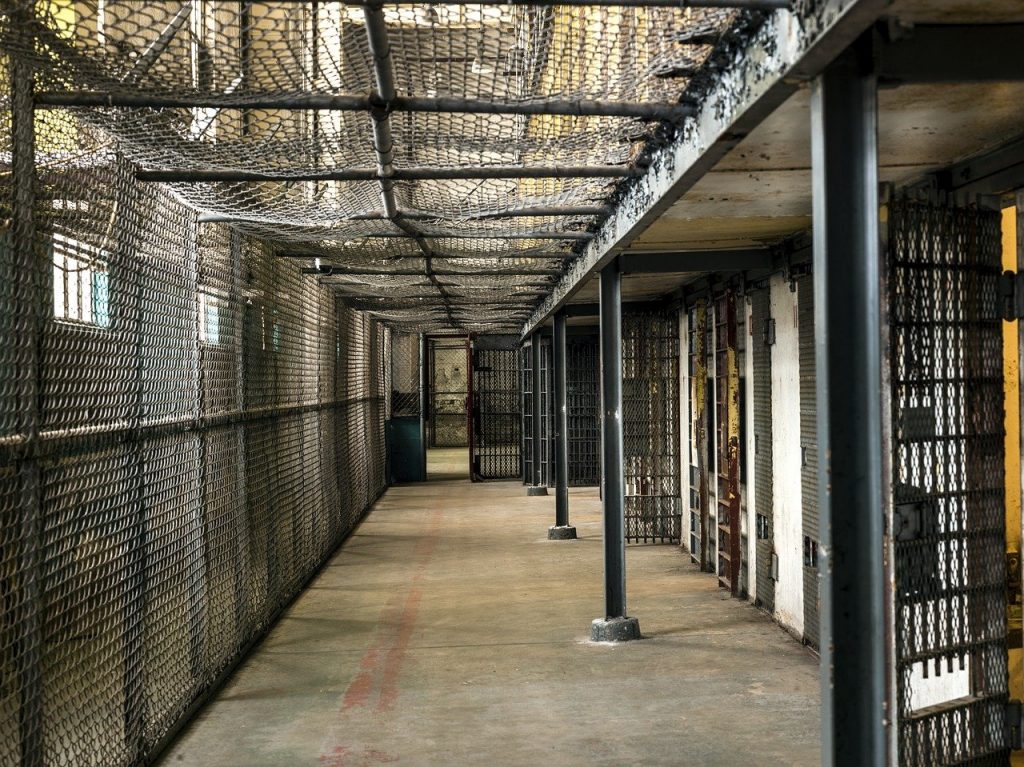
A recent poll by the National Opinion Research Centre revealed that 95% of Americans favour vital criminal justice reforms. This is hardly surprising, given that several people of varying racial, partisan and ideological dispositions have called out the justice system over its many failures throughout the years. Most Americans received the Trump Administration’s First Step Act as a step in the right direction, as about 60% of people approved the criminal justice reform bill according to a 2018 poll. However, many people still believe the justice system’s approach to crime is ineffective and needs dire change, and these are some reasons why.
Prison population and funding concerns
Research conducted revealed America has about 2.3 million prisoners, making the US the country with the highest incarceration rate globally. Experts estimate that the country’s prison population has grown by a whopping 340% over the past three decades; new prisoner admissions into jails are higher than prisoner release numbers. The cost of maintaining the nation’s prisons at taxpayers’ expense has inspired a lot of backlash and calls for budget cuts. According to research, slashed correction spending was the preferred option by most states to balance their budgets and redirect spending to other areas.
Minimum mandatory sentences
Minimum mandatory sentences are statutes that force judges to give defendants convicted of a crime the minimum prison sentence. Mandatory sentences rob judges of the traditional way of considering the defendant’s character and the unique circumstances surrounding offences. Even when represented by criminal defense attorneys with many years’ experience, defendants often succumb to prosecutors’ pressure to plead guilty or face more severe charges with higher mandatory sentences. The guilty plea bargain consequently resolves about 95% of both federal and state court cases. Research also shows that about half of inmates in federal prisons are doing time for drug offences- causing overpopulation in the prison system.
Growing number of people killed by the police
An estimated 1000 civilians are killed by police officers annually in the US. The frequency of police brutality cases over the years requires immediate reform to the American justice system. Data suggests that the incidence of fatal police shootings is higher among African-Americans than any other ethnicity, inspiring movements like the ‘Black Lives Matter’ campaign to press on with protests for significant police etiquette reforms towards coloured minorities. The police force faces incessant accusations of racial profiling, indiscriminate use of power, and poor discretion, which has led a reported 58% of Americans to think policing needs major reforms through measures like better-trained officers, and wearing body cameras.
Evolving public opinion on crime
Research released by the Sentencing Project and The Justice Policy Institute reveals that more people in conservative states are embracing preventive, rehabilitative, and alternative sentencing options for non-violent offenders. Most Americans now view the prevention of crime as the most vital function of the justice system, as 77% of Americans think that focusing more on character education and after-school programs would be cost-effective by reducing the number of people going to jail. Almost two-thirds of Americans also believe in the need for lighter sentences with more useful, reformative programs in prisons that will benefit inmates upon release. Therefore, support for harsh penalties that harden criminals and make them a more significant menace when reintroduced into society has dwindled.
Opinion
The History Question: Is It Better to Remember or to Forget?

Years ago, a philosopher by the name of George Santayana said a phrase that fuels many debates to this day. His original saying is “those who cannot remember the past are condemned to repeat it”, although, many sources now present it as variations of “those who cannot learn from history are doomed to repeat it”. The latter definitely has more substance to it in the light of the ongoing debate about how much history we should be learning and how.
Is It Better to Remember or Forget About the Past?
On one hand, Santayana was right. Learning about the past is essential in order for people to progress. One also shouldn’t overlook the importance of remembrance and paying respects to the dead, both those who pushed the progress forward and those who have fallen victims to major tragedies that could and should have been averted.
The main argument in favor of learning about the past is that its knowledge is necessary for preventing the same thing happening in the future. Having it one can see the signs and stop the tragedy before it gains momentum.
That’s sound in theory, but the reality is always different. For example, today people are surely forgetting, and the much-critiqued education system is only partially at fault here. Even the greatest of tragedies weren’t spared this fate. It’s a proven fact that about two-thirds of millennials today don’t know about the Holocaust, and this number is surely greater for generations that follow them. In the school history course, the subject of one of the greatest disasters in history is barely touched, if touched at all. And outside of a history classroom, one can only see small, but terrifying, glimpses of it at the Holocaust Museum and other museums that rarely attract many visitors. And now we are witnessing a rise of antisemitic crime.
Are these two facts related? Does the lack of awareness about the horrors done in the name of Aryan supremacy contribute to the fact that right-winged extremists seem to be gaining popularity again?
It does, but by how much? That is the question that no one can truly answer.
And what about other genocides? The Holocaust had the highest death toll, but it was far from the only genocide in history. And quite a few of those happened after World War 2 and before the memory of the atrocities against the Jews began to fade. This means that while forgetting history is a factor, it’s not the deciding factor in its repeats.
But what is that thing responsible for the reenactment of past mistakes and tragedies?
Learning. This is the important thing that is most often overlooked when citing Santayana’s famous saying. It’s not enough to learn about the past and know the facts of things that happened. It’s important to learn from those facts and put in place protections that will prevent them from happening again. And this is something that humanity, as a whole, has yet to succeed in doing.
Dwelling in the Past Can Be Just As Bad
One also shouldn’t forget that there is such a thing as “too much history”. The Bosnian War and genocide that happened there in the 1990s is a vivid example of how the past can be exploited by political powers. Used as a part of propaganda, which fueled the war, history can become a weapon in the hands of those who want to use it for their own goals.
And this is what humans have been doing since the dawn of time. There is always someone who will use any means necessary to achieve whatever it is they wish. This results in wars and genocides, and hundreds of smaller but no less devastating tragedies.
Therefore, the problem isn’t whether people should be learning history but human nature itself. Perhaps, teaching this can help fix this fundamental flaw and truly stop the worst of the past from repeating.
-

 Business8 months ago
Business8 months agoHow To Future-Proof Your Business With The Right Tools
-

 Travel7 months ago
Travel7 months agoTravelling from San Antonio to Guadalajara
-

 Business11 months ago
Business11 months agoThe importance of telescopic handlers: innovation and efficiency in load handling
-

 Travel12 months ago
Travel12 months agoDiscover extraordinary places and enjoy unique experiences
-

 Business10 months ago
Business10 months agoWhat are EDC products, and why should you always have them?
-

 Travel4 months ago
Travel4 months agoTravel wellness tips for a healthier and more enjoyable journey
-

 Europe2 months ago
Europe2 months agoRecent Books by Boaventura de Sousa Santos: Law, Colonialism, and the Future of Europe


